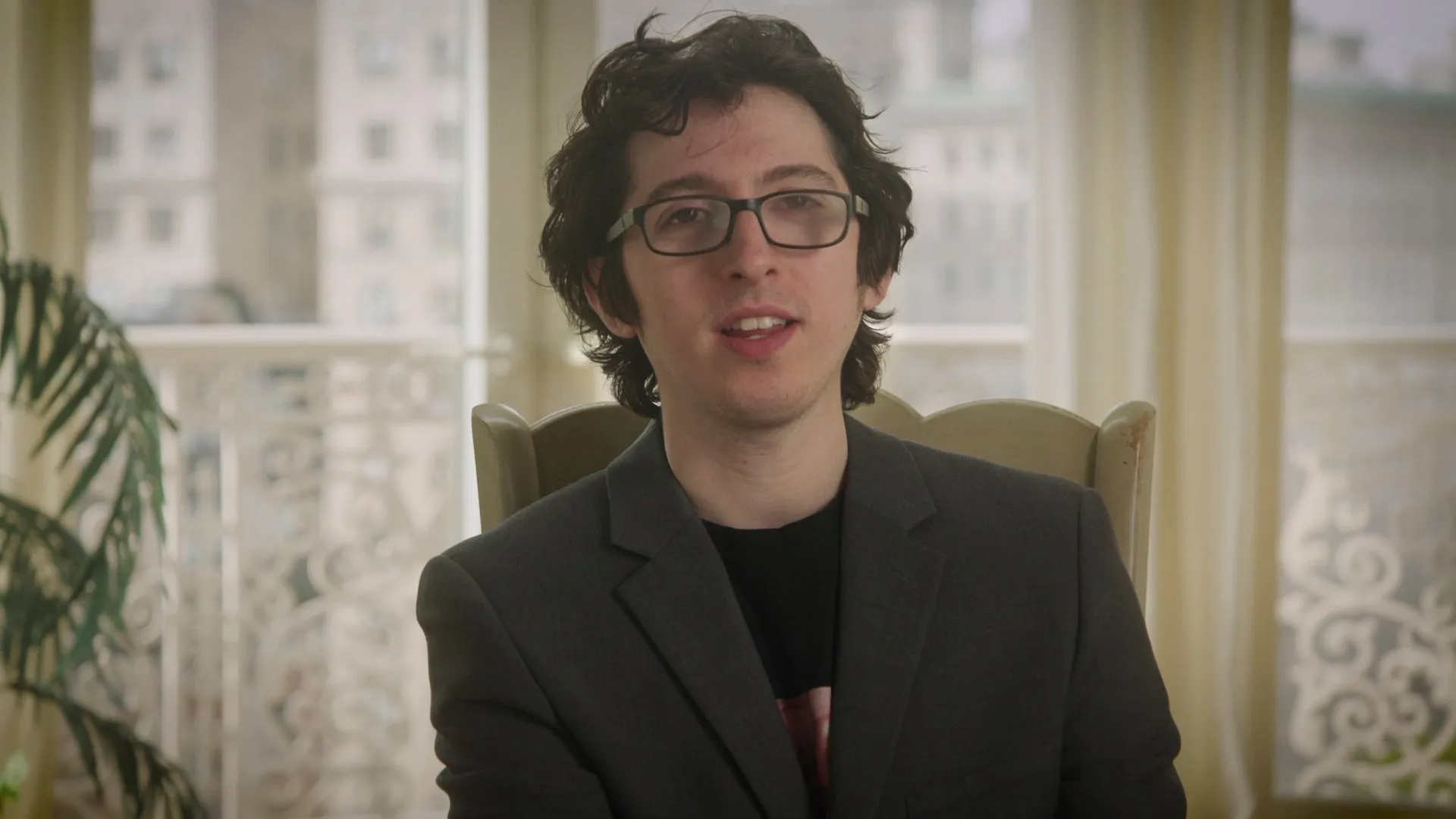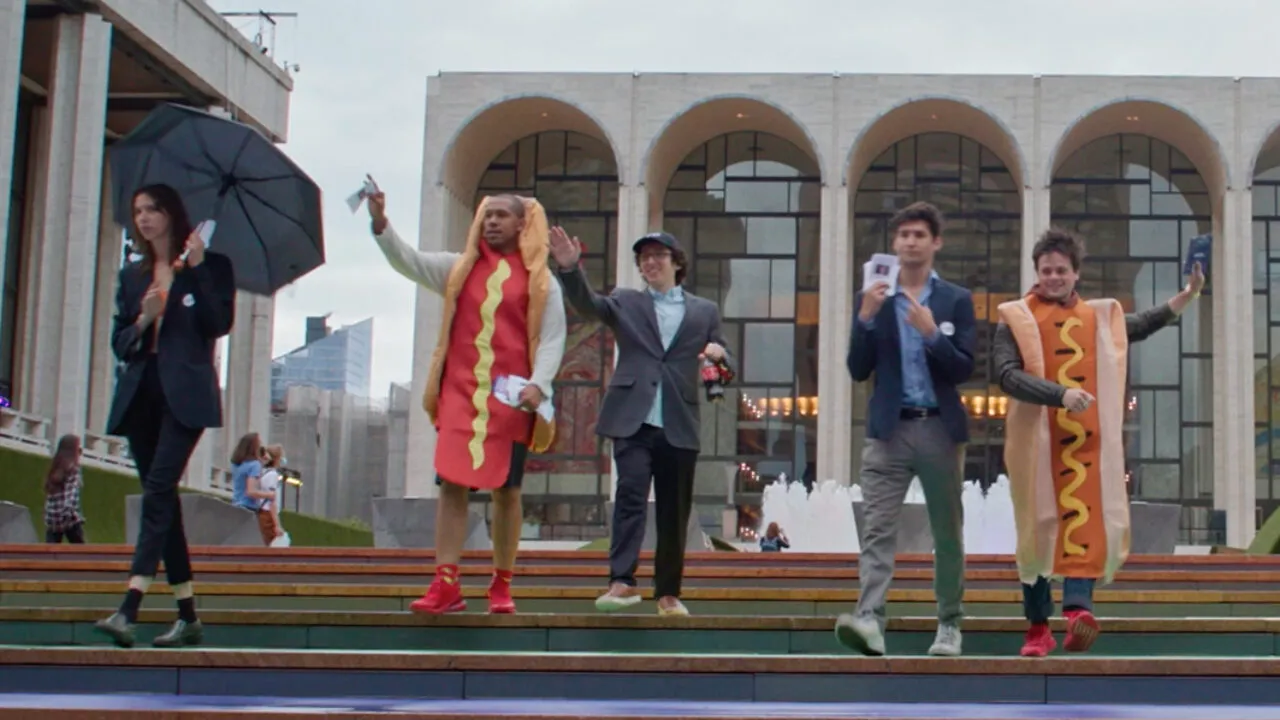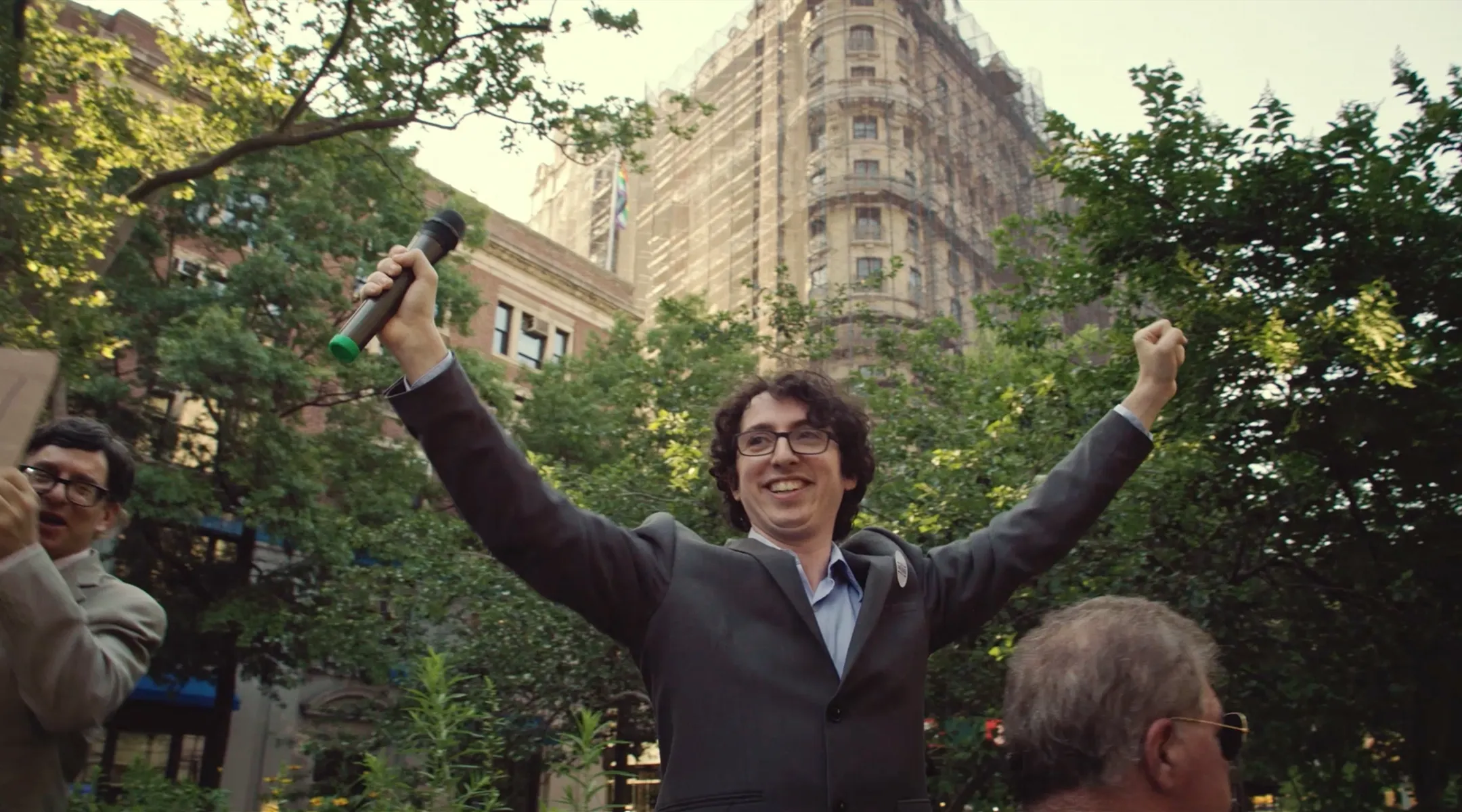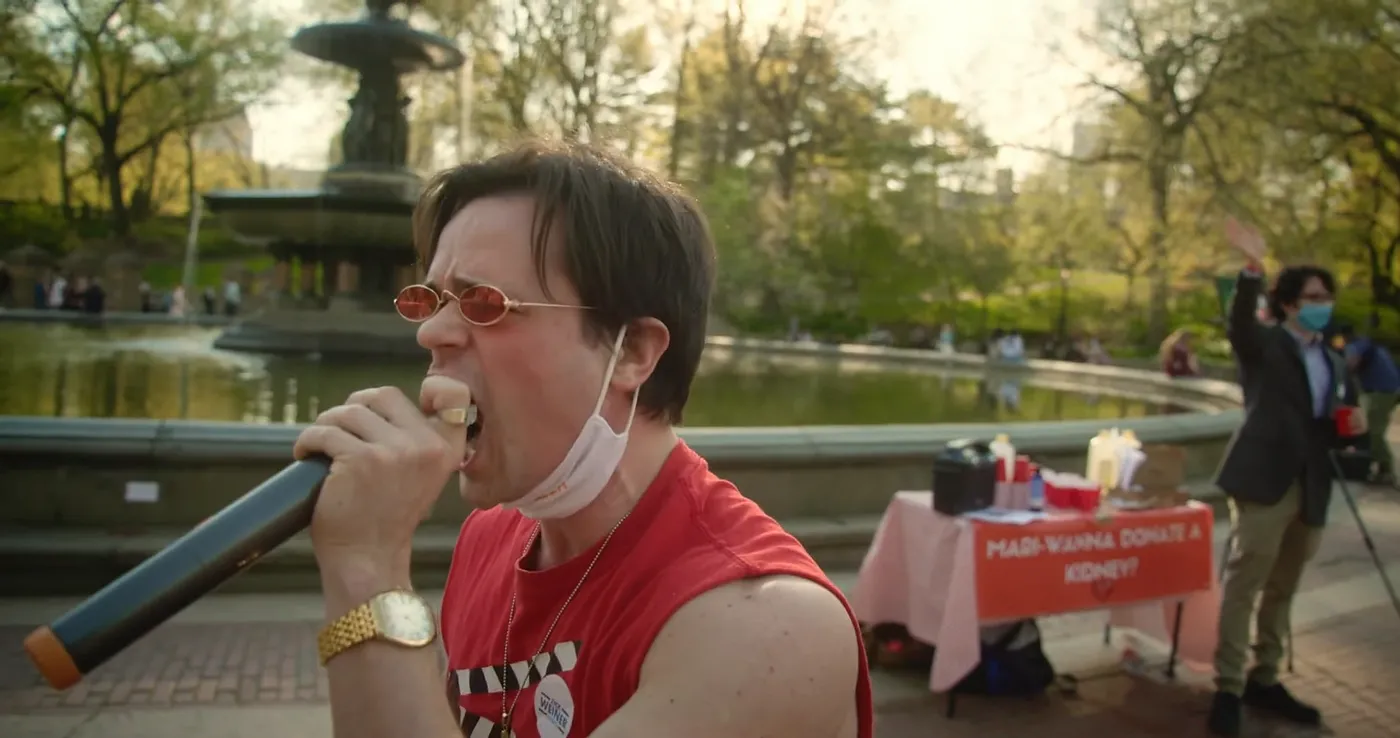Daniel Robbins’ film Citizen Weiner follows the brave journey of Zack Weiner, a new actor who decides to run for office as a political candidate. Weiner’s aspirations to serve New York’s Sixth District are followed as the 2021 City Council elections take place. Weiner embodies a new archetype of political engagement that foregoes traditional credentials in favor of a blend of charisma and sheer resolve. His decision to get involved in the murky world of local politics isn’t just a personal quest; it’s part of a larger narrative about government accessibility during times of crisis.
The film, set during the pandemic, shows how social isolation and disconnection have changed the political landscape, making community engagement more important than ever. Normal marketing methods failed during this time, but Weiner’s unique approach—as a well-known actor—made people care and be interested.
The pandemic changes how campaigns work and heightens the emotional resonance of his quest, revealing how necessity can spur creativity in civic engagement. The precariousness of political ambition during a time marked by uncertainty and upheaval is highlighted by Weiner’s frequently comedic and chaotic attempts to connect with voters. The film encourages viewers to reconsider the nature of leadership and its many forms in modern society as he deals with the difficulties of a grassroots campaign.
The Quirks of Democracy: A Character Study of Zack Weiner
As a candidate whose blend of ambition and vulnerability pushes him into the chaotic world of New York City politics, Zack Weiner emerges as an intriguing figure in Citizen Weiner. Weiner embodies the archetype of the unpolished outsider with his eccentric demeanor that veers between earnestness and absurdity.
His aspirations go beyond just winning a seat; they also include building a real relationship with his community, revealing a deeper desire to bring about change, even if it is done through unconventional means. This earnestness and moments of comedic blundering create a layered character who is both relatable and ridiculously endearing.
There are many different people backing Weiner’s campaign, and each of them gives his journey a unique twist. In the middle of the chaos, Weiner’s campaign manager, Joe Gallagher, serves as the voice of reason. His interactions with Weiner highlight the often rocky relationship between ambition and practicality in political endeavors, illustrating a delicate balance of camaraderie and annoyance. In contrast to Weiner’s whimsical ideas, Gallagher’s grounded method solidifies the narrative while adding humor to their dynamic.
Sarah Coffey, the TikTok celebrity hired as Communications Director, is just as interesting. Her presence represents the intersection of modernity and tradition in political campaigning, where engaging a disenchanted audience is essential. Coffey’s youthful exuberance and creative strategies starkly illustrate the changing political communication landscape, where virality frequently trumps content.
Weiner’s mother, Cherie Vogelstein, is also highlighted in the film. Her comedic appearance serves as both a lighthearted and somber reflection on the expectations of family. Her part is more than just comic relief; it gives us a look into Weiner’s personality and intentions. Their interactions highlight the delicate balance of support and scrutiny that frequently characterizes family relationships, particularly those in the public eye. Citizen Weiner’s tapestry of characters reflects the complexities of political ambition, the absurdity of modern campaigns, and the human links that underpin all of this.
Laughing Through the Chaos: The Humor and Satire of Citizen Weiner
The absurdities of local politics are magnified in Citizen Weiner through humor as both a narrative technique and a lens. The film’s comedic style is characterized by a blend of deadpan delivery and situational irony, allowing it to walk the thin line between earnestness and farce.
There are funny moments in the middle of all the chaos in Weiner’s campaign, which is a masterful use of contrast in tone. His mistakes, like the failed attempts to get attention through crazy stunts, not only bring laughter but also highlight the often absurd nature of political ambition.
The film’s humor is ingrained, allowing it to make a point about the nature of civic engagement in a time when social media and short attention spans are prevalent. Weiner’s unconventional advertising tactics, such as pushing his film in political ad spaces, are an excellent example of a complex comedic moment. This cunning move criticizes the commodification of political actions and highlights the absurdity of a candidate who relies on theatricality to gain support in a serious setting.
In addition, the satire makes a larger point about political standards and expectations. The film cleverly pokes fun at the pretenses of traditional campaigning through Weiner’s diverse group of enthusiastic but woefully unqualified fans. The stark difference between Weiner’s ragtag group and the polished, well-funded establishment candidates, especially Gale Brewer, is a biting critique of the political status quo. The humor drawn from their naivety sharply underlines a deeper message about accessibility and the frequently exclusive nature of political processes.
Moments of absurdity, like the infamous BDSM scandal that defines Weiner’s campaign, are used as a masterclass in political satire as the narrative progresses. The film forces viewers to reflect on what matters in political discourse by including such a scandalous element that forces them to confront their complicity in sensationalism. In this way, Citizen Weiner makes you laugh and think, illustrating the power of laughter to criticize society, especially in the complicated landscape of contemporary politics.
The Art of the Unconventional: Weiner’s Campaign Strategies
Citizen Weiner gives a fascinating example of how an unconventional political campaign can be more effective than a standard one. A blend of audacity and whimsy marks Zack Weiner’s style, and he frequently uses methods between real engagement and pure spectacle.
One method that stands out is using non-political advertising places, like the LinkNYC kiosks, to promote his film instead of a typical political goal. This gets people’s attention while also going against what people think a campaign can and should look like, illustrating how performance art can be used in politics.
In a media-saturated landscape where traditional strategies fail, Weiner’s campaign is a testament to the power of visibility. His team’s antics, which include dressing up as hot dogs and engaging in ridiculous publicity stunts, highlight a strategy that embraces the absurdity of politics while appealing to the public’s love of politics. In a time when the line between serious conversation and entertainment has become less clear, this playful subversion hits home.
Also, it’s impossible to say enough about how important social media was to Weiner’s campaign. The film shows how unexpected events can become viral and make a candidate famous. Weiner’s campaign is punctuated by shocking news stories, especially about the famed BDSM scandal, which not only makes headlines but also changes his narrative.
Weiner shows how the modern political landscape necessitates adaptability and a keen sense of timing to thrive in chaos by taking advantage of social media’s immediacy to turn potential problems into opportunities for engagement. In an age where attention is currency, Weiner’s unorthodox strategies reveal a refreshing perspective on engaging with voters, challenging the foundations of political campaigning.
The Fabric of Engagement: Themes in Citizen Weiner
Zack Weiner’s unconventional campaign exemplifies contemporary civic involvement in Citizen Weiner, skillfully exploring the complex themes of political engagement and grassroots activism. The film emphasizes the idea that political engagement doesn’t have to be limited to the wealthy or those who are traditionally qualified.
It can come from people on the edges, motivated by passion and a sincere desire to make a difference. Weiner’s antics, which are frequently funny, are a wake-up call for those who are left out of the political conversation. His campaign, marked by sincere but misguided enthusiasm, serves as a testament to the power of grassroots movements, proving that even the most unusual efforts can connect with a community hungry for change.
A more complex reflection on privilege and ambition is intertwined with this accessibility message. With his background as an actor and the backing of his family, Weiner’s political candidacy raises important questions about the structural advantages that often come with it. He embodies the spirit of grassroots action, but his journey is also punctuated by the clear realities of privilege that make it easy for him to deal with the complexities of a campaign.
The film makes viewers think about how privilege shapes narratives, affects perceptions, and frequently drowns out the words of less fortunate people. Citizen Weiner becomes a multilayered exploration of what it means to engage in democracy in a landscape where accessibility clashes with systemic inequalities, transcending mere political satire. Weiner’s ambition is inspiring and troubling, making us think more deeply about how people get involved in politics and the systems that control it.
Framing the Farce: Cinematic Style in Citizen Weiner
In Citizen Weiner, Daniel Robbins’ direction is a masterclass blending visual style with narrative pacing, crafting a film that is both engaging and thought-provoking.
The film’s visual style, characterized by close-up handheld camerawork, draws viewers into the crazy world of Weiner’s campaign, creating a sense of immediacy that heightens the absurdity of the events that are taking place. This method captures the fast-paced energy of grassroots action and shows how unpredictable political work can be.
The pacing makes the comedic and thematic elements even more noticeable, swinging between frantic humor and moving moments of thought. Robbins does a great job of contrasting quick edits with longer, more thoughtful ones, allowing the audience to enjoy the absurdities while engaging with the deeper messages about ambition and privilege.
This rhythmic ebb and flow strengthens the film’s satirical edge, ensuring that laughter doesn’t come at the cost of intellectual thought. Citizen Weiner, under Robbins’ skillful direction, develops into a lively take on the complexities of contemporary politics that is both entertaining and thought-provoking.
The Resonance of Absurdity: Final Thoughts on Citizen Weiner
Citizen Weiner compellingly explores the intersection of humor and the harsh truths of modern politics. The film excels at weaving together absurdity and earnestness, crafting an entertaining and thought-provoking narrative.
Through Zack Weiner’s unconventional campaign, the film challenges viewers to reconsider the accessibility of political engagement, illustrating how passion and creativity can change how things are done in politics.
Citizen Weiner provides a welcome view on grassroots activism in today’s climate, where disillusionment with conventional politics is rampant. It also reminds audiences of the power of individual voices, no matter how unconventional. Viewers who find resonance in the absurdities of modern life and seek to comprehend the complexities of social engagement will find this film particularly suited to their tastes. It is a blend of comedy and political commentary. It serves as a sobering reminder that political ambition can take many different forms, and the journey is frequently just as important as the result.
The Review
Citizen Weiner
Citizen Weiner expertly blends humor and somber commentary to vividly portray grassroots political engagement. Zack Weiner’s unconventional campaign is a comedic spectacle and a thought-provoking study of ambition and privilege in modern politics. Thanks to Robbins' direction and the film's sharp satire, audiences are encouraged to reflect on public life's absurdities while celebrating the power of individual voices. For those looking to understand the current political landscape, this new perspective on political ambition is entertaining and pertinent.
PROS
- Engaging blend of humor and political commentary
- Insightful exploration of grassroots activism
- Strong direction and unique visual style
- Memorable and quirky campaign tactics
- Provocative reflections on privilege and ambition
CONS
- Some may find the humor overly absurd
- Focus on Weiner's personal life might overshadow broader themes
- Not all viewers may connect with the satirical approach





















































